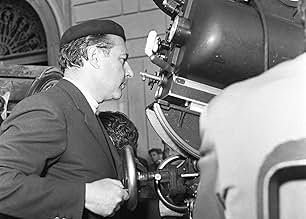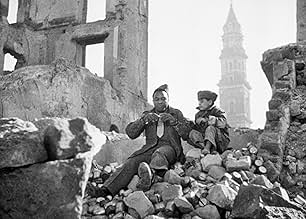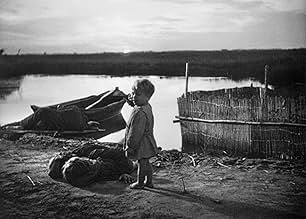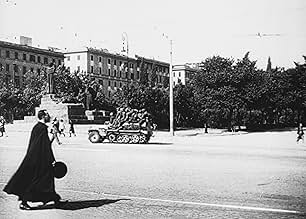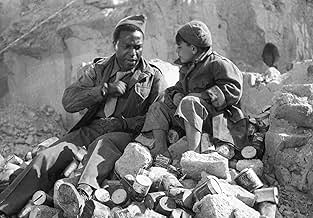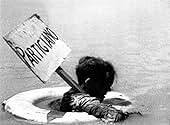La barrière de la langue a des conséquences tragiques dans une série d'histoires indépendantes se déroulant pendant la campagne d'Italie de la Seconde Guerre mondiale.La barrière de la langue a des conséquences tragiques dans une série d'histoires indépendantes se déroulant pendant la campagne d'Italie de la Seconde Guerre mondiale.La barrière de la langue a des conséquences tragiques dans une série d'histoires indépendantes se déroulant pendant la campagne d'Italie de la Seconde Guerre mondiale.
- Nommé pour 1 oscar
- 10 victoires et 2 nominations au total
- American Soldier (episode I: Sicilia)
- (as Leonard Penish)
- Joe - American MP (episode II: Napoli)
- (as Dots. M. Johnson)
- Pasquale (episode II: Napoli)
- (as Alfonsino)
- Harriet - Nurse (episode IV: Firenze)
- (as Harriet White)
Histoire
Le saviez-vous
- AnecdotesThe monks in the fifth episode were authentic Franciscan monks from the Maiori convent, near Salerno.
- GaffesAt approximately 1:36 (2:05 version), during Episode V, as the American Army Catholic Chaplain stands in the center of the screen discussing his two associate Army Chaplains (Protestant and Jewish) with the monks, you can see two individuals standing in the doorway behind them (they appear to be the other two Army Chaplains). In less than a minute, they suddenly disappear.
- Citations
Captain Bill Martin - the catholic chaplain (episode V: Appennino Emiliano): I've never examined their consciences. I've never discussed this with them. I've never asked them anything, because I never felt I could judge them. I know them too well. They're good friends. Perhaps you, here mind this peace, this atmosphere of serene meditation, consider me guilty. I don't feel guilty. My conscience is clear.
- Autres versionsOriginally premiered at the Venice Film Festival on September 8, 1946 in a longer cut (running 134 minutes). Later cut to 125 minutes. The 134 min. cut has been restored from material found at the Bundesarchiv-Filmarchiv in Berlin, Germany and has premiered at the 55th Venice Film Festival in 1998.
- ConnexionsEdited into Il sasso in bocca (1970)
All six stories are my favorites, but I particularly like the monastery segment. It portrays religious prejudice by christian monks towards two priests, one jewish and another a lutheran, right in the middle of the war. To the absurdity of all, the monks come to the priests´ companion, a Christian, to make them realize "the true path". One more time, Rosselini doesn´t end the segment with lessons of moral; its ending is very ambiguous and ironic. "Paisà" is a gem; i like it better than "Roma, Città Aperta", also a masterpiece of neorealism.
- diogoal-2
- 7 juill. 2003
- Lien permanent
Meilleurs choix
- How long is Paisan?Propulsé par Alexa
Détails
- Date de sortie
- Pays d’origine
- Langues
- Aussi connu sous le nom de
- Paisan
- Lieux de tournage
- Uffizi Gallery, Florence, Toscane, Italie(episode IV: Firenze)
- sociétés de production
- Consultez plus de crédits d'entreprise sur IMDbPro
- Durée2 heures 6 minutes
- Couleur
- Mixage
- Rapport de forme
- 1.37 : 1
Contribuer à cette page


